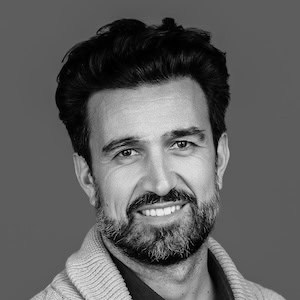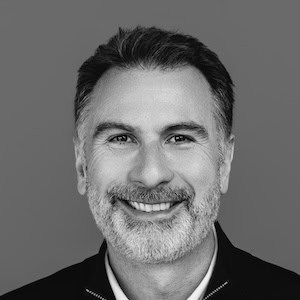-
Measuring Systems Change in Agricultural Finance in Africa: Practical Metrics and Guidance for Detecting and Tracking Real Change
Despite employing 65-70% of the region's population and contributing 20-40% of national GDPs, Africa's agriculture sector receives less than 3% of its overall commercial credit — and in some countries, that share hasn't changed for decades. But according to Carla Legros, a consultant and strategist in agricultural and inclusive finance, that doesn't necessarily mean that progress has stalled. She proposes a set of metrics for assessing whether systems change is actually happening in the continent's agricultural finance sector.
- Categories
- Agriculture, Finance
-
From COVID to Foreign Aid Cuts: How Community-Led Financial Access Can Help Women and Their Communities Weather Crises
The COVID pandemic had a substantial impact on women’s financial access in many emerging economies — an impact that persists to this day. Now, as Kathy Guis at Kiva explains, a new crisis is building, as foreign aid cuts and broader macroeconomic uncertainty reduce funding to financial service providers focused on women’s inclusion. She argues that despite the urgency of other global issues, access to financial services matters, and explores how Kiva hopes to grow its support for women and other vulnerable populations despite the challenging funding environment.
- Categories
- Finance
-
The Rise of the Creator Economy in Emerging Markets: Empowering Youth and Marginalized Communities Through Web Monetization
The creator economy — a thriving ecosystem of online content creators ranging from influencers to bloggers — is a growing source of employment and income in developing economies, especially for younger generations. And as Matšeliso Thabane at the Interledger Foundation explains, alternative earning routes are emerging that can allow these creators to monetize their content in new ways. She explores how Web Monetization — a “pay-as-you-use” approach that enables small, real-time payments to content creators — can help this work become a viable career for creators in emerging markets.
- Categories
- Technology, Telecommunications
-
Connected Power: Ensuring Africa is Not Left in the Dark — or Offline
Sub-Saharan Africa has both the highest energy access and digital connectivity gaps in the world. As Ravi Suchak at Helios Towers explains, this is due not to a lack of demand, but to fundamental infrastructure barriers: Telecom towers and mobile networks require a reliable power supply, which is often absent or prohibitively expensive in rural areas, and electricity providers need consistent demand to de-risk rural energy investments. He explores a solution that addresses both of these needs: "connected power," a development approach that aligns energy and telecom infrastructure by positioning telecom towers as anchor customers for electrification projects.
- Categories
- Energy, Technology, Telecommunications
-
Bringing Digital Transformation to the Water Sector: How New Technologies Can Boost Water Access in LMICs
Digital technologies have the potential to revolutionize the management and distribution of clean water in low- and middle-income countries (LMICs). But according to Ellie Gabel, an environmental science writer at Revolutionized, many countries don't have access to these technologies, or lack the capacity to implement them. She explores this challenge in the context of Kenya, and discusses five essential factors that may aid or hamper digital transformation in the water sector across LMICs.
- Categories
- Technology, WASH
-
It’s Time to Rethink Universal Health Coverage in Africa: Introducing ‘Access-as-a-Service’
As global health funding contracts, traditional brick-and-mortar healthcare delivery models are becoming financially and operationally unsustainable, in Africa and across low- and middle-income countries. Joanne Peter at Jhpiego and Rob Beyer at Villgro Africa argue that this raises the need for innovative new pathways toward universal health coverage. They propose one such approach, developed through their work at the HealthTech Hub Africa: "Access-as-a-Service," a model that combines in-person care options with first-line healthcare provided through digital channels.
- Categories
- Health Care, Technology
-
Being a Changemaker in an Era of Accelerating Change: A Q&A with Ashoka Founder and Social Entrepreneurship Pioneer Bill Drayton
NextBillion last interviewed Bill Drayton — the founder of Ashoka and a seminal figure in the social entrepreneurship movement — on the sidelines of SOCAP almost 10 years. Since that time, the sector (and the world around us) have experienced massive change, but one thing has remained consistent: Drayton’s focus on empowering changemakers around the world to transform their innovative ideas into lasting impact. Earlier this year, he was given the Skoll Foundation’s Global Treasure Award in recognition of his pioneering contributions to the field of social entrepreneurship: In this Q&A, he shares his thoughts on the sector as it enters a new era full of emerging challenges — and exciting opportunities.
- Categories
- Social Enterprise
-
Mobilizing More Capital for African SME Funds: New Research Reveals Persistent Market Constraints — And a Growing Focus on Innovation
Over the past decade, African SME fund managers have experienced remarkable growth, diversifying geographically, across asset classes and in fund structures. However, according to Marianne Vidal-Marin at Investisseurs & Partenaires (I&P) and Julia Kho at Triple Jump, SME investing remains challenging across the continent. They share insights from a new I&P report exploring the current SME fund investment landscape in Africa — the first in a series of NextBillion articles on what makes SME finance work across emerging markets, and in Africa in particular.
- Categories
- Investing










